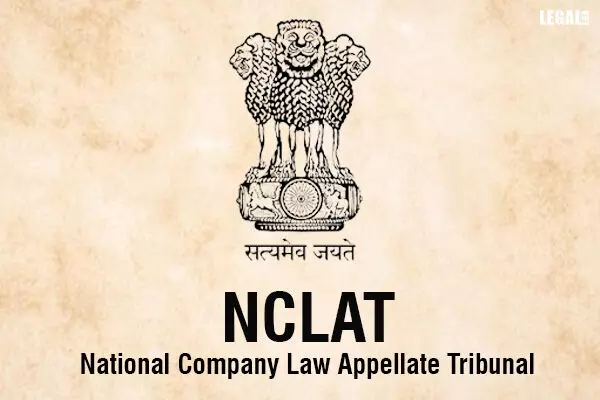- Home
- News
- Articles+
- Aerospace
- Artificial Intelligence
- Agriculture
- Alternate Dispute Resolution
- Arbitration & Mediation
- Banking and Finance
- Bankruptcy
- Book Review
- Bribery & Corruption
- Commercial Litigation
- Competition Law
- Conference Reports
- Consumer Products
- Contract
- Corporate Governance
- Corporate Law
- Covid-19
- Cryptocurrency
- Cybersecurity
- Data Protection
- Defence
- Digital Economy
- E-commerce
- Employment Law
- Energy and Natural Resources
- Entertainment and Sports Law
- Environmental Law
- Environmental, Social, and Governance
- Foreign Direct Investment
- Food and Beverage
- Gaming
- Health Care
- IBC Diaries
- In Focus
- Inclusion & Diversity
- Insurance Law
- Intellectual Property
- International Law
- IP & Tech Era
- Know the Law
- Labour Laws
- Law & Policy and Regulation
- Litigation
- Litigation Funding
- Manufacturing
- Mergers & Acquisitions
- NFTs
- Privacy
- Private Equity
- Project Finance
- Real Estate
- Risk and Compliance
- Student Corner
- Take On Board
- Tax
- Technology Media and Telecom
- Tributes
- Viewpoint
- Zoom In
- Law Firms
- In-House
- Rankings
- E-Magazine
- Legal Era TV
- Events
- Middle East
- Africa
- News
- Articles
- Aerospace
- Artificial Intelligence
- Agriculture
- Alternate Dispute Resolution
- Arbitration & Mediation
- Banking and Finance
- Bankruptcy
- Book Review
- Bribery & Corruption
- Commercial Litigation
- Competition Law
- Conference Reports
- Consumer Products
- Contract
- Corporate Governance
- Corporate Law
- Covid-19
- Cryptocurrency
- Cybersecurity
- Data Protection
- Defence
- Digital Economy
- E-commerce
- Employment Law
- Energy and Natural Resources
- Entertainment and Sports Law
- Environmental Law
- Environmental, Social, and Governance
- Foreign Direct Investment
- Food and Beverage
- Gaming
- Health Care
- IBC Diaries
- In Focus
- Inclusion & Diversity
- Insurance Law
- Intellectual Property
- International Law
- IP & Tech Era
- Know the Law
- Labour Laws
- Law & Policy and Regulation
- Litigation
- Litigation Funding
- Manufacturing
- Mergers & Acquisitions
- NFTs
- Privacy
- Private Equity
- Project Finance
- Real Estate
- Risk and Compliance
- Student Corner
- Take On Board
- Tax
- Technology Media and Telecom
- Tributes
- Viewpoint
- Zoom In
- Law Firms
- In-House
- Rankings
- E-Magazine
- Legal Era TV
- Events
- Middle East
- Africa
NCLAT: Homebuyer Cannot Challenge Approved Resolution Plan, Must Abide By Majority Decision

NCLAT: Homebuyer Cannot Challenge Approved Resolution Plan, Must Abide By Majority Decision
The National Company Law Appellate Tribunal (NCLAT), New Delhi bench, comprising Justice Ashok Bhushan (Chairperson), Barun Mitra (Technical Member), and Arun Baroka (Technical Member), has ruled that an individual homebuyer cannot challenge the approval of a Resolution Plan if the majority of homebuyers have consented to it. The Tribunal emphasized that a lone homebuyer must abide by the collective decision and cannot independently question the plan’s approval.
The case involved appeals filed by Jai Prakash Keswani, a Promoter, and Harvinder Singh, a Homebuyer, challenging the order of the Adjudicating Authority, which had approved the Resolution Plan for the Corporate Debtor. The Promoter also contested a separate order rejecting his objections to the plan. They argued that the plan was neither viable nor feasible, as its implementation depended on obtaining an Occupancy Certificate and required handing over of units within nine months, making it conditional and uncertain. The homebuyer contended that the plan did not fulfill the requirements of Regulation 38 of the CIRP Regulations, 2016. Additionally, the Promoter claimed that while the Adjudicating Authority had initially stated that objections would be considered, they were not addressed in the final order.
The Tribunal, however, held that the objections raised in the Interim Application were properly addressed in the Resolution Plan. It stated that concerns regarding the plan’s implementation within nine months could only be raised after the stipulated period expired, not at the approval stage. Emphasizing the authority of the Committee of Creditors (CoC) to assess the plan’s viability and feasibility, the Tribunal noted that since the CoC had approved it with 100% voting, the plan was deemed to have met the necessary standards. It further observed that the scope of judicial interference in the approval of a Resolution Plan is extremely limited, as established in the case of Committee of Creditors of Essar Steel India Limited vs. Satish Kumar Gupta & Ors.
The Tribunal also referred to the Supreme Court’s decision in Jaypee Kensington Boulevard Apartments Welfare Association & Ors. vs. NBCC (India) Limited & Ors., affirming that a single homebuyer cannot challenge an approved plan when the majority has endorsed it. Upholding this legal precedent, the Tribunal concluded that the challenge to the Resolution Plan was not maintainable and dismissed the appeals, reinforcing that an individual homebuyer must go along with the collective decision of the homebuyers.



